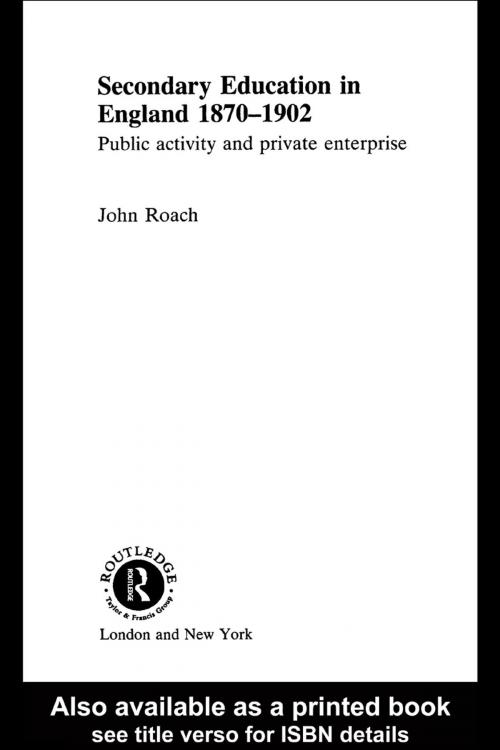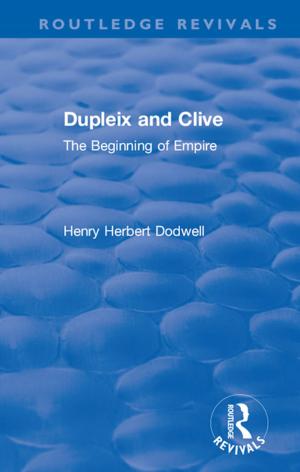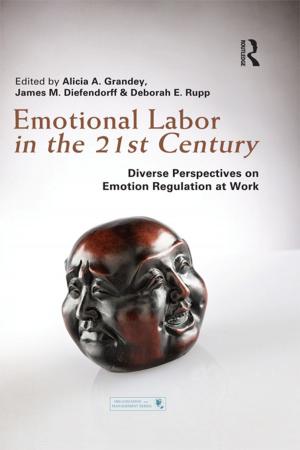| Author: | Prof John Roach, John Roach | ISBN: | 9781134960088 |
| Publisher: | Taylor and Francis | Publication: | October 12, 2012 |
| Imprint: | Routledge | Language: | English |
| Author: | Prof John Roach, John Roach |
| ISBN: | 9781134960088 |
| Publisher: | Taylor and Francis |
| Publication: | October 12, 2012 |
| Imprint: | Routledge |
| Language: | English |
In this comprehensive and extensively researched history, John Roach argues for a reassessment of the relative importance of State regulation and private provision. Although the public schools enjoyed their greatest prestige during this period, in terms of educational reform and progress their importance has been exaggerated. The role of the public school, he suggests, was social rather than academic, and as such their power and influence is to be interpreted principally in relation to the growth of new social elites, the concept of public service and the needs of the empire for a bureaucratic ruling class. Only in the modern progressive movement, launched by Cecil Reddie, and the private provision for young women, was lasting progress made. Even before the 1902 Education Act however the State had spent much time and effort regulating and reforming the old educational endowments, and it is in these initiatives that the foundations for the public provision of secondary educational reform are to be found.
In this comprehensive and extensively researched history, John Roach argues for a reassessment of the relative importance of State regulation and private provision. Although the public schools enjoyed their greatest prestige during this period, in terms of educational reform and progress their importance has been exaggerated. The role of the public school, he suggests, was social rather than academic, and as such their power and influence is to be interpreted principally in relation to the growth of new social elites, the concept of public service and the needs of the empire for a bureaucratic ruling class. Only in the modern progressive movement, launched by Cecil Reddie, and the private provision for young women, was lasting progress made. Even before the 1902 Education Act however the State had spent much time and effort regulating and reforming the old educational endowments, and it is in these initiatives that the foundations for the public provision of secondary educational reform are to be found.















